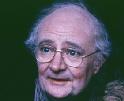 Photo © 2001 Lions Gate Films |
Halle Berry — Monster's Ball Why You Already Knew Her: Most likely in one of her two most visible and least challenging personas: the comely but uninteresting "babe" in comedies like Boomerang or family fare like Race the Sun, or as the even more gratuitously doe-like fashion plate in blockbuster fare like X Men, the risible Executive Decision, or last summer's Swordfish. Halle—may I call her Halle?—has attempted to do more specific, character driven work before her revelatory performance in Monster's Ball, but except for her Emmy-winning role in the HBO film Introducing Dorothy Dandridge, few of her "serious" projects got much exposure. Where to Go Next: Losing Isaiah—This 1995 drama, one of her more compelling dramatic outings, again finds Halle (as in Monster's Ball) as a financially and emotionally under-equipped mother under stress: this time, she is a recovering drug addict attempting to win back the custody of a baby she left for dead. The suburban white couple who adopted the child are played by Jessica Lange and David Strathairn, and once the situation reaches the courtroom, the opposing lawyers are played by Samuel L. Jackson and his real-life wife, LaTanya Richardson. As you're probably divining, the top-notch cast are more than equal to the script's potentially rich examination of interracial adoption. The ending is such a copout that Lange herself denounced the film, but there's plenty here to remember—not least of which is Halle Berry's strong work as a troubled woman trying hard to prove she's gotten better. |


















